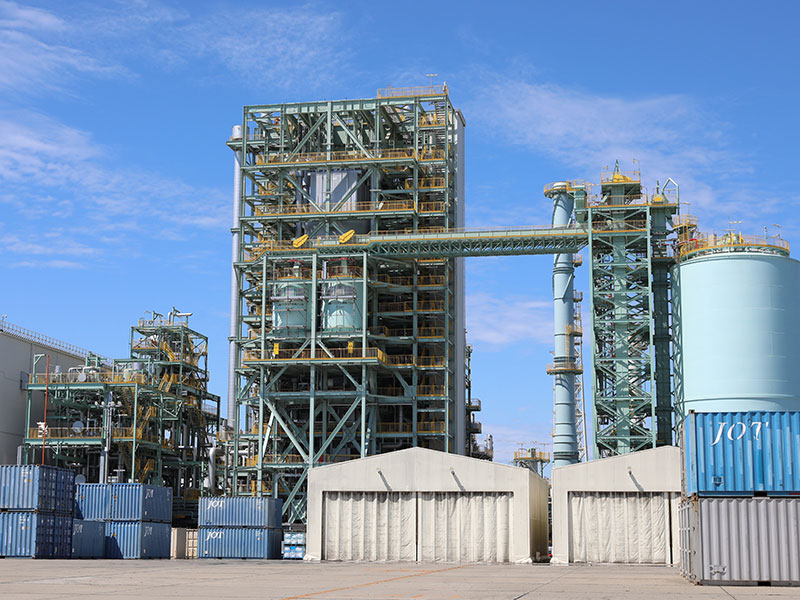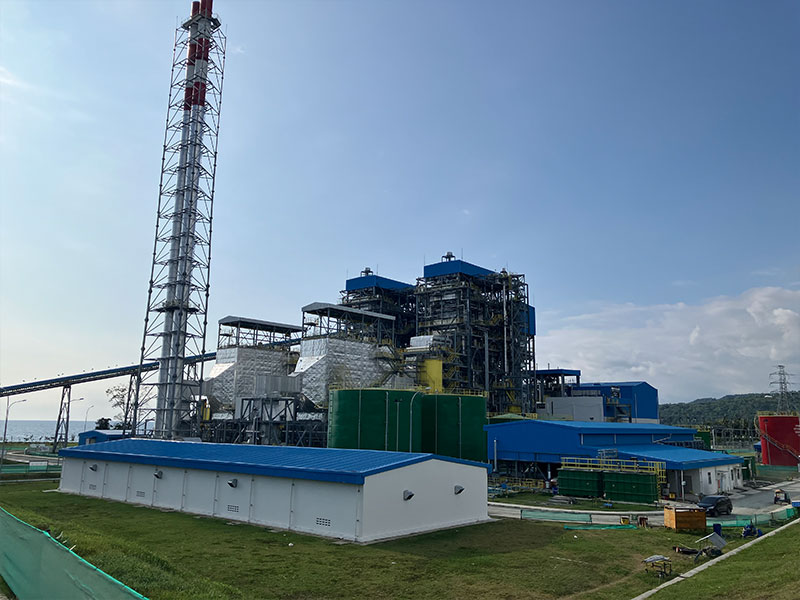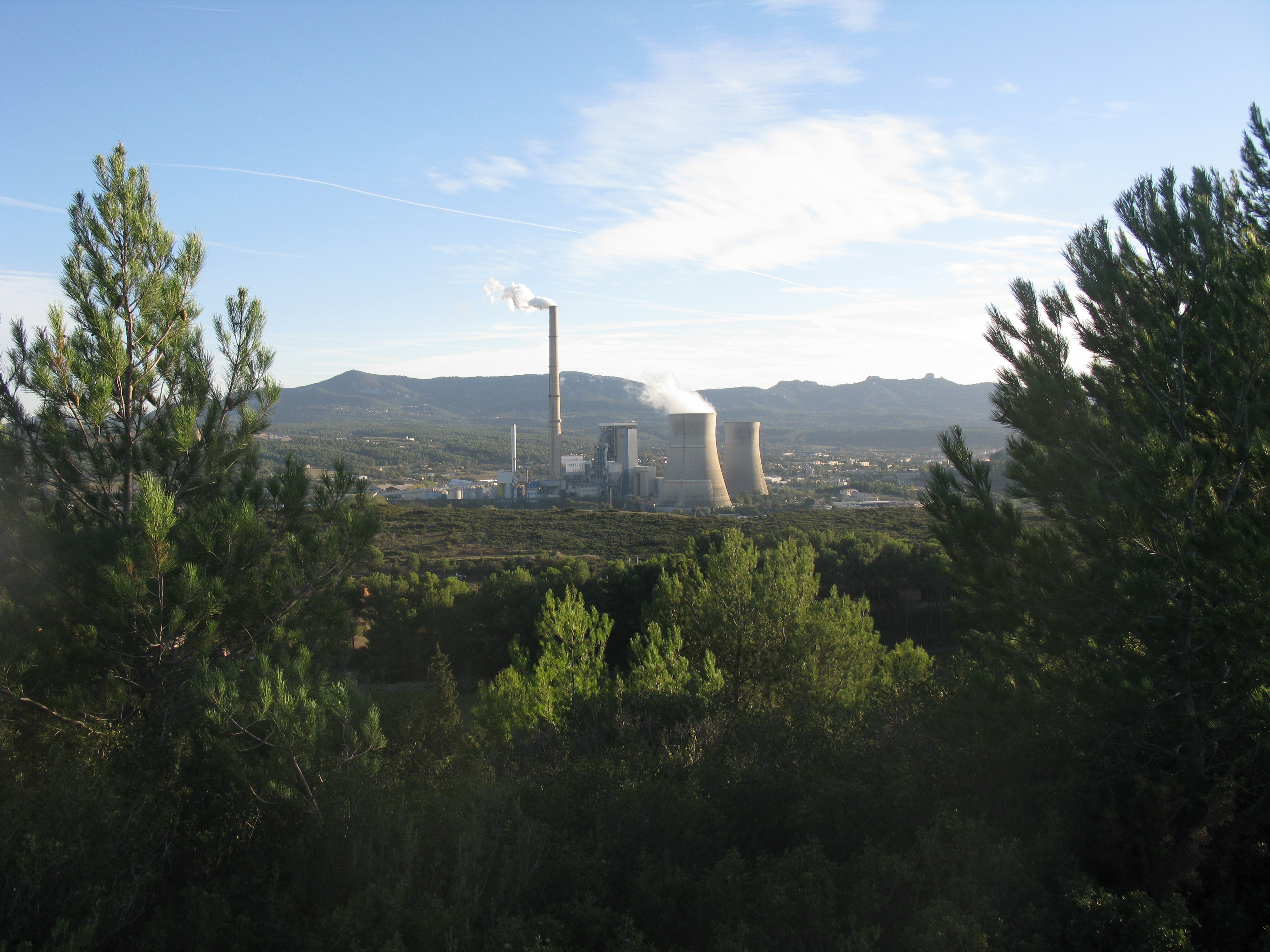Circulating Fluidised Bed

Biomass-CFB role model for Japan
Doosan Lentjes supplied the key technology for a CFB boiler (Circulating Fluidised Bed) for the 75 MWe biomass power plant in Sodegaura, Japan. The scope of supply included the engineering and procurement of the boiler island, comprising the boiler and flue gas cleaning equipment.
The project was realised for the plant operator, the Osaka Gas Group, as part of a larger engineering and procurement contract awarded to Doosan Enerbility. In close cooperation with the local partner Chiyoda Corporation, extensive expertise was combined along the entire value chain.
The plant design is based on increased steam parameters and an optimised superheater system. This design enables maximum utilisation of the generated steam, thus contributing to achieving the highest levels of efficiency. Both integrated and supplementary flue gas cleaning systems were used to comply with the applicable emission requirements.
The project underlines the increasing efforts of the Japanese government to implement a sustainable, low-CO₂ energy supply.

Small CFB boilers for Indonesian State Electricity Company
Doosan Lentjes was selected to deliver key CFB boiler equipment for a new 2 x 50 MWe power plant located in Palu on the Indonesian island Sulawesi. The supply will include both engineering and procurement of the boiler island encompassing the major boiler equipment. The contribution will also cover advisory services for both erection and commissioning. After the completion of the project, Doosan Lentjes will train the staff of the client, the Indonesian State Electricity Company Perusahaan Listrik Negara (PLN), in the operation of the plant.
Working together with our parent company Doosan Heavy Industries & Construction, who will act as the EP contractor for boiler and turbine, we will deliver an integrated solution from one strong hand. Value engineering has enabled us to tackle the challenges posed by a strong local competitive pressure driven by low-cost projects.
Palu 3 is the first CFB project delivered by Doosan Lentjes in Indonesia and demonstrates that the technology meets the market trend towards smaller plants and can add value to local power generation.
The specific features of CFB combustion allow an optimal exchange between gas and solids, so that efficient heat transfer and fuel-burnout is possible. Thus, even with the coal used in Palu, which has a particularly high moisture content, efficient energy recovery from the fuel can be achieved. Inherently low NOx emissions fulfil new Indonesian regulations without additional DeNOx systems like SNCR or SCR.

CFB boiler conversion for E.ON’s Provence power plant
Doosan Lentjes was selected to provide key components of its circulating fluidised bed (CFB) boiler technology for the major biomass conversion and turbine upgrade at the Provence power plant in Gardanne, southern France. The contract, awarded in 2013, marked a significant step towards France’s largest biomass-fired power plant and was a flagship reference for advanced CFB technology in Western Europe.
Working alongside our partners Doosan Babcock and Doosan Škoda Power, Doosan Lentjes delivered the full engineering scope, including CFB boiler conversion as well as a new flue gas cleaning system tailored to stringent environmental requirements. The project involved scaling the unit down from 250 MWe to 170 MWe, retrofitting the turbine, and enabling 100% biomass operation.
The Gardanne conversion met strong technical challenges, providing high-efficiency combustion even with variable biomass and waste wood fuels of high moisture. The advanced flue gas cleaning solution ensured compliance with applicable regulations, contributing to significantly reduced emissions.
Upon completion, the modernized plant delivered 170 MWe of renewable electricity – enough to power approximately 440,000 households – and helped cut the region’s annual CO₂ balance by 600,000 tons. The retrofit also extended the operational lifetime of the boiler and steam turbine generator by an additional 20 years. By collaborating seamlessly with local partners and creating new employment opportunities, the project successfully supported both the local economy and the broader energy transition in France.